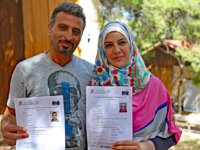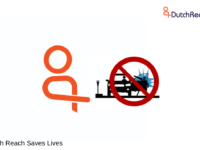Digital Lithuania Academy is an online learning platform that aims to guide the country’s public sector through the digital transformation. It seeks to immerse public servants in digital practices relevant to their work, and upgrade their professional profiles through a highly personalized learning pathway. By becoming increasingly tech-savvy, public servants have the chance to vastly increase their efficiency, find innovative ways of working, and deliver better public services to citizens.
Innovation Tag: Skills and Competencies
The European Qualifications Passport for Refugees is a unique instrument providing refugees with an assessment of qualifications that cannot be fully documented. Based on the Lisbon Recognition Convention (Council of Europe/UNESCO), the methodology tested by the Council of Europe, the UNHCR, nine countries, National Recognition Centres and universities enables refugees to have their qualifications accepted across borders to continue their studies or find a job related to their education.
Learning Together for Better Public Engagement (Learn4PE) was a pilot initiative designed to build public engagement capacity across the Government of Canada. In its first iteration, participants spent five weeks learning together in English and French, both online and by participating in live sessions with experts. While targeted towards federal public servants, registration was open to all, enabling the exchange of relevant ideas and resources.
Work 2.0 Lab is a new collaborative working and learning environment. It is available to all agencies and civil servants in government and other organisations involved in the 2-years experiment. The purpose is to promote better, higher quality ideas, solutions and decisions on cross-cutting matters outlined for example in the government program. Work 2.0 Lab provides the structures and platforms (environments, spaces, networks, methods) for collaborative learning needed to work together.
Case Study
SELFI (JUVENILE FILIAL SCHOOL / FORMAL EDUCATION SERVICES AT SPECIAL CLASS DEVELOPMENT INSTITUTION…

Sekolah Filial (SELFI) is a high quality formal education service for child prisoners in a special child development institution, Lembaga Pembinaan Khusus Anak (LPKA) Klas I in Palembang. This innovation is a solution to provide educational rights for all, including child prisoners in Palembang. This was a major problem in Palembang because of the high number (191) of cases reached in 2014, far above the national average of 95 cases. This innovation has been able to lead them to a better future.
Dutch Reach Project (DRP) closes a serious gap in existing road safety efforts to prevent “dooring,” a common, feared & at times fatal crash caused when exiting motorists - using their near hand - suddenly throw open their car door into the path of a bicyclist or other vulnerable road user (VRU).
To prevent dooring, DRP promotes the Dutch Reach (DR): reaching across to the door with the far hand to open - a much safer method.
The DR project is already gaining increasing attention and being…
The project was inspired by the need to promote coding in Greek primary education. It fostered the exploration of the actual use of digital technologies in the Schools, the way new technologies could transform School classrooms into real labs and the level of impact in the improvement of the digital skills of teachers and pupils.
Organisational development in a municipality within a framework set by the municipal council is not new. However, a local authority can still be innovative in how it designs such development and the role employees play in it. In Nijkerk (approx. 43,000 inhabitants), this has led to an organisation made up of 28 self-managing teams that come directly under the authority of the municipal clerk. Nijkerk went through a process where employees and the development of their talent came first.
To encourage data-driven decision making in public sector, University of Latvia and Microsoft Innovation Center developed a “Data challenge” platform and methodology. Aim of the initiative is to bring together teams of public sector officials and data analysts and in few weeks to create several AI solution prototypes for a specific public sector challenge giving the organisation an opportunity to explore innovative, data-driven solutions that they eventually can develop and implement in…
There is a significant gap in Labour Market Information for people living on reserves in Canada. This Pilot project will improve the detail and timeliness of labour force information for on-reserve First Nations (FN) communities towards reducing the skills and employment gaps between First Nations and non-indigenous Canadians, through co-development.
The components to the Innovation are:
1.Annual survey of the entire on-reserve population 15 years or older
2.Skills inventory to support skills…


